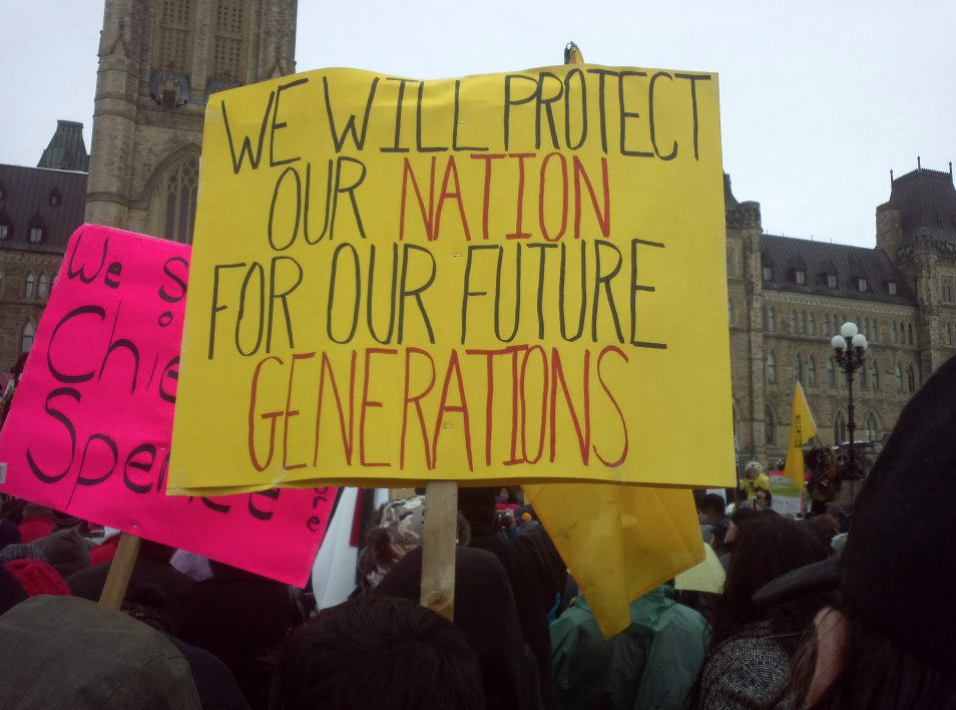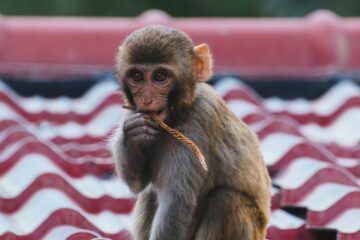
CC BY-SA 3.0
Inequality: Past to Present
Throughout history, Indigenous peoples have experienced oppression and marginalization globally. Although there have been movements toward reconciliation with Indigenous peoples, it is clear that both internationally and within Canada, non-Indigenous peoples receive advantages which Indigenous peoples do not.
The rights of Indigenous peoples are being violated through the current housing crisis, which involves contaminated water on reserves, excessive amounts of mold in homes, overcrowding, structural issues, and overall poor housing conditions.[i]A report published by the United Nations in July 2019 examined the insufficient housing conditions faced by Indigenous peoples and the lack of resources available to combat these problems. The report called the housing conditions “overwhelmingly abhorrent”, illustrating how the housing crisis violates the right to proper housing.[ii]
The Issues at Hand
Indigenous peoples are being deprived of the right to live in security and dignity due to the insufficient housing on reserves. As presented in the United Nations report, it is clear that there are serious consequences of living in inadequate housing. Higher rates of homelessness exist, people are at a higher risk for serious health problems, and they become more vulnerable to experience forced evictions.[iii]
In Canada, the housing epidemic is something that affects many Indigenous communities. It is easy and often common for many people to ignore indigenous issues. The reality is that Canada has a serious history of oppressing Indigenous peoples, and continues to enforce systematic violence through abhorrent housing.[iv]
The Attawapiskat First Nation community in Northern Ontario was forced to declare a state of emergency due to poor water quality.[v] Tests were conducted on the water in this area, and proved that the water was contaminated with harmful levels of disinfection byproducts. The water is hence unsafe for residents to drink. Accordingly, the Attawapiskat Chief has asked officials with Indigenous Services Canada to provide the community with free bottles of clean water, as many Attawapiskat residents are unable to afford these on their own.[vi]
Unfortunately, the Attawapiskat First Nation community is not the only Indigenous group which has been forced to declare a state of emergency due to unsafe living conditions; the Cat Lake First Nation community has also declared a state of emergency. Also located in Northern Ontario, the homes in this community contain excessive amounts of mold and an abundance of structural issues. The lack of funding for standard maintenance of housing infrastructure is causing health problems amongst residents, such as invasive bacterial diseases and lung infections.[vii]
Attawapiskat and Cat Lake First Nations are two examples of the many Indigenous communities within Canada experiencing a housing crisis; their residents are being forced to live in dangerous conditions.
The UNDRIP’s Broken Promise
The United Nations Declaration on the Rights of Indigenous Peoples (UNDRIP) is a document committed to recognizing the need to “respect and promote the rights of Indigenous peoples”.[viii]The UNDRIP reaffirms that Indigenous peoples are equal to all other peoples, and recognizes Indigenous contribution to diversity of societies and cultures. There are many articles listed under the UNDRIP which protect the rights of Indigenous peoples. However, the current treatment of Indigenous peoples, and the quality of housing demonstrates a clear violation of rights.
Article 1 of the UNDRIP states that “Indigenous peoples have the right to the full enjoyment, as a collective or as individuals, of all human rights and fundamental freedoms as recognized in the Charter of the United Nations, the Universal Declaration of Human Rights, and international human rights law.”[ix]However, the housing crisis is a clear violation of this article, as the basic human right to live in security is being compromised. Houses filled with mold and undrinkable water do not allow Indigenous people to live freely or experience a sense of security at home.
Article 23 of the UNDRIP states that “Indigenous peoples have the right to determine and develop priorities and strategies for exercising their right to development. In particular, Indigenous peoples have the right to be actively involved in developing and determining health, housing and other economic and social programmes affecting them, and far as possible, to administer such programmes through their own institutions.”[x]This article promises Indigenous peoples the ability to have a role in the development of their housing, although according to the United Nations report, Indigenous peoples are rarely provided with the opportunity to “design and implement their own housing policies”. The housing crisis and the lack of Indigenous contribution to housing development and policies are clear violations of the United Nations Declaration on the Rights of Indigenous Peoples.
A Severed Bond
Contaminated water, excessive amounts of mold in homes, overcrowding, structural issues, and overall poor housing conditions are all factors which contribute to the current Indigenous housing crisis. This crisis demonstrates a broken relationship between Indigenous peoples and non-Indigenous peoples. The rights of Indigenous peoples have been violated and are continuously being violated with very little action being taken to help. It is time to examine the issues occurring here in Canada and recognize that Indigenous peoples are still being marginalized and denied equal opportunities.
This severed bond with Indigenous peoples is a reflection of how non-Indigenous peoples are failing to recognize the seriousness of the housing crisis. Continuing to overlook this problem will only further divide Canadian societies, causing Indigenous peoples to feel neglected by their own government and fellow Canadians.
Edited by Mira Cantor
References:
[i]Salmaan Faroqui, “UN report highlights ‘abhorrent’ housing conditions for Indigenous people,” CTV News, October 21, 2019, https://www.ctvnews.ca/canada/un-report-highlights-abhorrent-housing-conditions-for-indigenous-people-1.4647433.
[ii]“United Nations General Assembly Adequate Housing as a Component of the Right to an Adequate Standard of Living, and the Right to Non-Discrimination in This Context.” a/74/183 – E – a/74/183, June 17, 2019. https://undocs.org/en/a/74/183.
[iii]“United Nations General Assembly Adequate Housing as a Component of the Right to an Adequate Standard of Living, and the Right to Non-Discrimination in This Context.”
[iv]“United Nations General Assembly Adequate Housing as a Component of the Right to an Adequate Standard of Living, and the Right to Non-Discrimination in This Context.”
[v]Jorge Barrera, “Attawapiskat declares state of emergency over water quality,” CBC News, July 9, 2019, https://www.cbc.ca/news/indigenous/attawapiskat-water-quality-emergency-1.5204652.
[vi]Jorge Barrera, “Attawapiskat declares state of emergency over water quality.”
[vii]Matt Propopchuk, “Cat Lake First Nation declares state of emergency over illness, death from ‘profoundly poor’ housing,” CBC News, January 17, 2019, https://www.cbc.ca/news/canada/thunder-bay/cat-lake-state-of-emergency-1.4982734.
[viii]“United Nations Declaration on the Rights of Indigenous …” Accessed November 14, 2019. http://www.un.org/esa/socdev/unpfii/documents/DRIPS_en.pdf., 8.
[ix]“United Nations Declaration on the Rights of Indigenous…”, 9.
[x]“United Nations Declaration on the Rights of Indigenous…”, 18.




